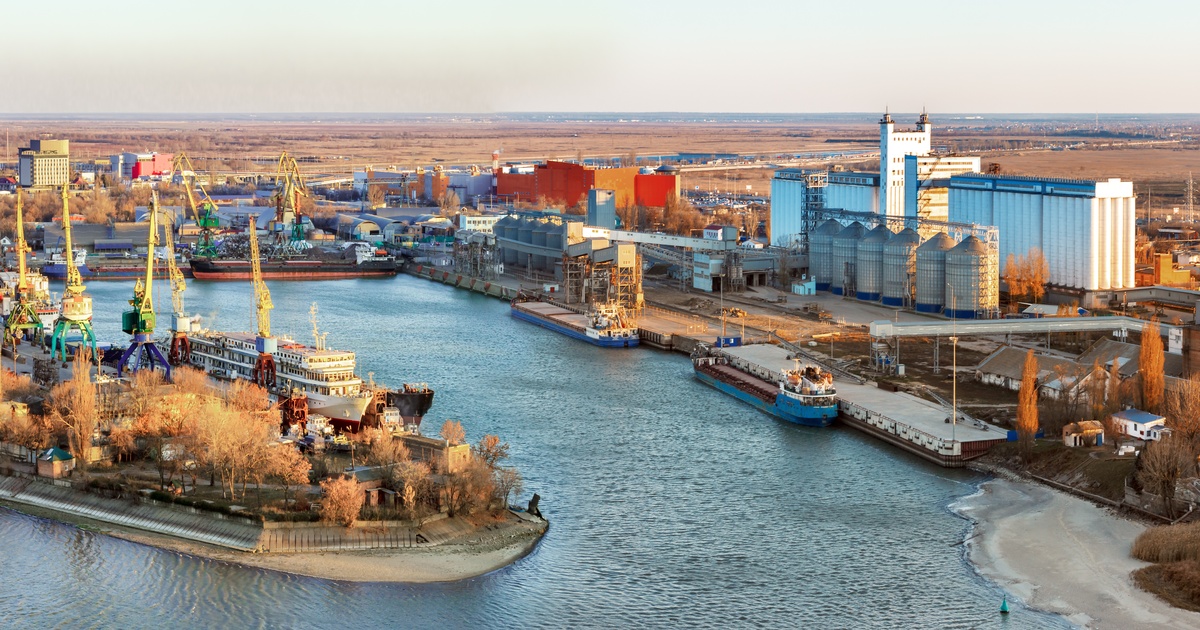Agriculture Trade Deficit Continues to Grow
Posted on Jul 11, 2024
By definition, a trade deficit is the amount by which the cost of a country's imports exceeds the value of its exports, according to the Oxford Dictionary.
The nation’s agriculture industry has found itself in a growing trade deficit, something that has only happened four other times in the last six decades and never at the amount at which it currently stands.
In an exclusive interview with Kentucky Farm Bureau News, the Republican Chief Economist for the U.S. Senate Committee on Agriculture, Nutrition, and Forestry John Newton said the USDA’s May Agricultural Trade Outlook showed another increase in the deficit from the February report.
“The most recent (USDA) forecast updated their projection for imports and increased it by about a billion dollars reducing the trade deficit to a negative $32 billion, which is the largest trade deficit that U.S. agriculture has ever had in history," he said. "We've only had four negative trade balances going back close to 60 years. So, it opens some eyes to where exactly trade is for U.S. agriculture. We know trade's so important for the farm economy and to see a negative trade balance is certainly concerning."
The same USDA report noted agricultural exports in fiscal year (FY) 2024 are projected at $170.5 billion, unchanged from the February forecast.
Newton said U.S. imports so many horticultural products, whether it's fruits and vegetables, wines and spirits and that's really the factor that's driving this negative trade balance along with lower commodity prices for grains and oil seeds.
“I think with a farm bill in front of us and (something) all of our stakeholders have been asking for years, we need to double MAP (Market Access Program) and FMD (Foreign Market Development) funding, so that we can go out and find and develop new markets,” he said. “Our producers have the highest quality and best food available. There's no reason why we can't send food around the world and have a positive trade balance.”
Newton said there have been some efforts to assist in trade promotion, but the current House version of the farm bill could help in those efforts forward.
“I know Chairman Thompson (House Ag Committee Chair Glenn "GT" Thompson) has had several visits around the country,” Newton said. “He’s been listening to farmers and producers in the agribusinesses, and they said, 'Look, inflation's hitting us, too and we need our MAP and FMD dollars. We need those increased so that we have a long-term investment in our trade promotion and market development resources.'"
Making these investments can certainly help to reduce this current trade deficit but American farm families are facing increased competition from other countries, as well. Newton said making investments could help to mitigate this trend in the long run, but it has to be in coordination with enhanced access in markets around the world.
Much of the increased competition is coming from South America. Newton pointed out it’s not only that these countries are planting more acres of crops like corn, cotton, sugar, or soybeans, but they're also putting a lot of money into their infrastructures.
“When they harvest a crop, they can get it to the export market quickly, but one of the things that I think, when you talk to our farm groups here in this country, not only do we have the highest quality products in the world, but we also do it in such a sustainable way,” he said. “And that's not something a lot of our competitors can say. That'll make us competitive long term.”
Another factor that the ag industry here may not be able to counter is some countries are producing their products with very low labor costs making it harder for U.S. producers to compete at the grocery store, with labor costs being as low as they are in some of these foreign markets.
“I'm an optimist and you can never count U.S. agriculture out,” Newton said. “Farmers and ranchers are innovators and I think we're definitely going to get this thing turned around.”
Getting the farm bill across the finish line will be a key component in making this happen. In addition to investments in MAP and FMD, Newton said a strong domestic market is also important, something American agriculture has and can bolster, especially when it comes to biofuels.
“We need to get this sustainable aviation fuel and the (biofuels) tax credit issue figured out to create more opportunities here, but we have to get out there, find and develop those new markets,” Newton said. “I know our trade partners want our products and to buy U.S. agricultural products. So, I think we'll meet the moment, and we'll reverse this trend.”
U.S. Senate Republican Leader Mitch McConnell, a senior member of the U.S. Senate Committee on Agriculture, Nutrition & Forestry, told KFB News, “Kentucky’s farmers rely on selling their goods abroad for their livelihoods, exporting over $3 billion in products each year, but our nation’s agricultural trade deficit has become a huge problem.”
McConnell added, “Years of trade surplus under previous administrations have vanished thanks in part to President Biden’s failure to outline a clear trade agenda and his refusal to ink a single trade agreement while in office. As Congress continues its work on the Farm Bill, Senate Republicans stand ready to support the Foreign Markets Development and Market Access Programs, and we continue to urge the Biden Administration to hold our trading partners accountable for breaking the rules.”
Comments